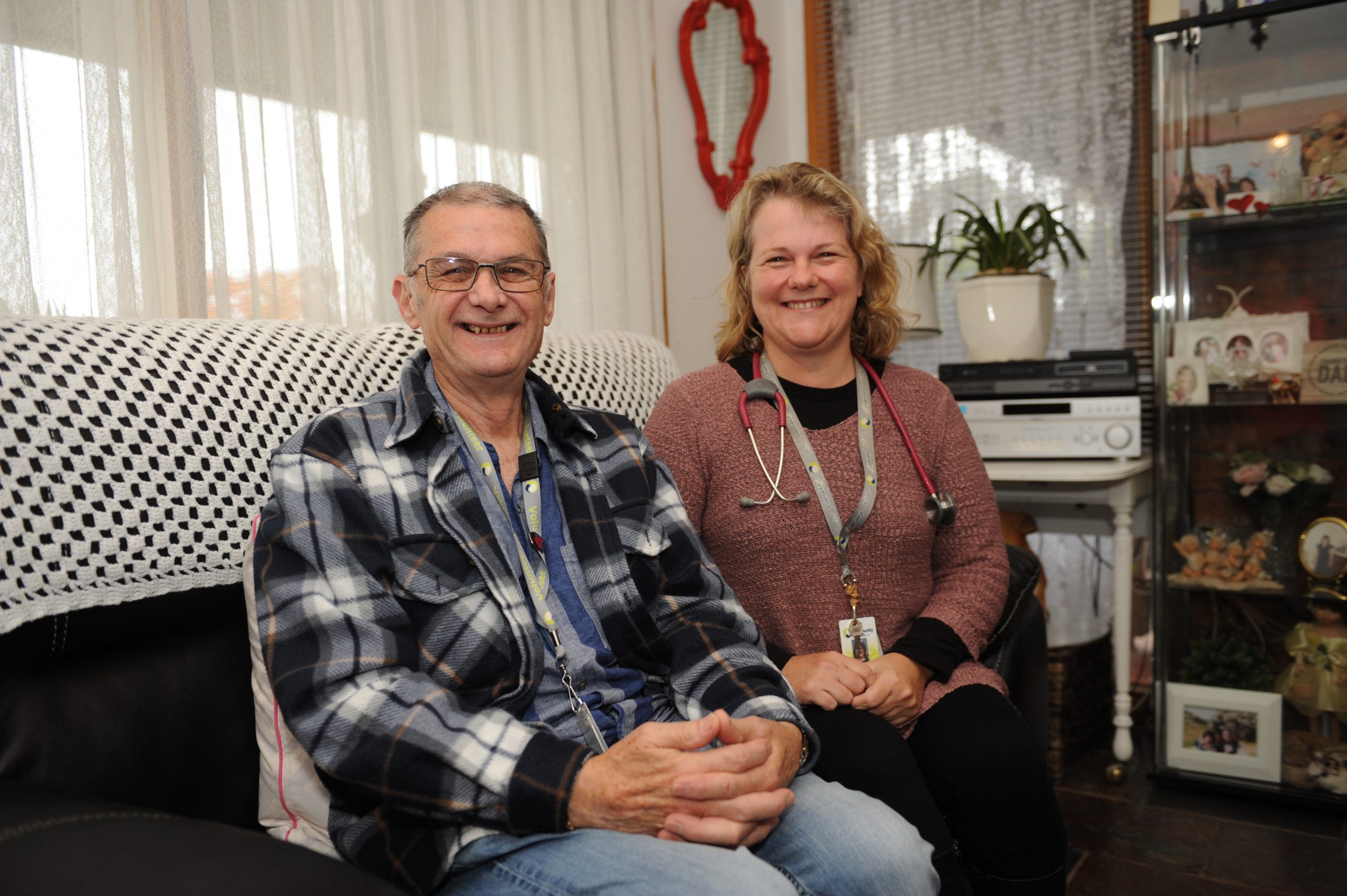When Tony Rae broke his leg in 2012 he was offered a redundancy package by EneryBrix from the former Morwell Power Station – it was an offer too good to refuse.
But after some time on the couch the Morwell resident of more than three decades was “desperate to give back to the community”.
It was around that time a friend suggested he consider becoming a palliative care volunteer, responsible for visiting people living with a terminal illness.
That friend was Latrobe Community Health Service pastoral nurse Michelle Davy who said Mr Rae, along with eight other volunteers, provided an invaluable service.
Mr Rae is just one of thousands of people throughout the country who will this week be recognised during National Volunteer Week, coincidentally coinciding with Palliative Care Week and this year’s theme of “what matters most”.
“I felt I needed to give back to the community – after I heard a bit about the role I thought ‘yeah, I could do that’,” Mr Rae said.
“I find that it fulfils something within me but I also realise that I’m helping someone else out there who looks forward to that meeting once a week.”
Mr Rae visits people living with a terminal illness for about an hour each week to sit and chat with them on a range of subjects, keeping them company and supporting them through an often challenging time.
“I’ve been to a number of funerals where relatives have come up to me and said ‘we really appreciate what you did with dad and the length of time you’d spend with him because he’d always speak about you’,” Mr Rae said.
“When you help someone like this, you’re not only helping a client – you’re helping their family. Some of them don’t have family, and because it’s a man on man thing, in some cases the wife will normally go and do shopping … it gives their partner some free time.”
Ms Davy described palliative care volunteers like “a close friend” to people who were living with an illness and often had less than 12 months to live.
“Sometimes we find friends of these people who are ill will start moving away from them because they have trouble with the fact that their friend is dying,” Ms Davy said.
“In some cases they can become more isolated than what they were before so what happens is the volunteers come in and because they’ve undertaken four-and-a-half days of full-on training, they’ve got a good understanding of what’s going on.”
In one case, a palliative care volunteer saved the life of a client, according to Ms Davey, after realising the client was critically ill and required medical treatment.
“[The husband] let the volunteer in and she realised this client was deathly unwell and the husband was unable to recognise that … we were able to get that client sent to hospital and have her life extended because of that volunteer,” she said.
“If that client hadn’t visited, that woman would’ve died within 24 hours and this way she was able to actually regain a bit of her independence and say goodbye to people on her terms rather than in a crisis.”
“People are really able to make a difference in someone’s life. It’s not just about spending time with their patient in their last moments – it’s about being a good friend and without volunteers it could not be done.”
Mr Rae encouraged people to consider volunteering in the Latrobe Valley and said in many cases, volunteering was both rewarding and satisfying.
I think, if you like people, it’s a very good area to get into because it helps you personally to grow and know how other people live and it also helps people out there who do need help,” he said.












